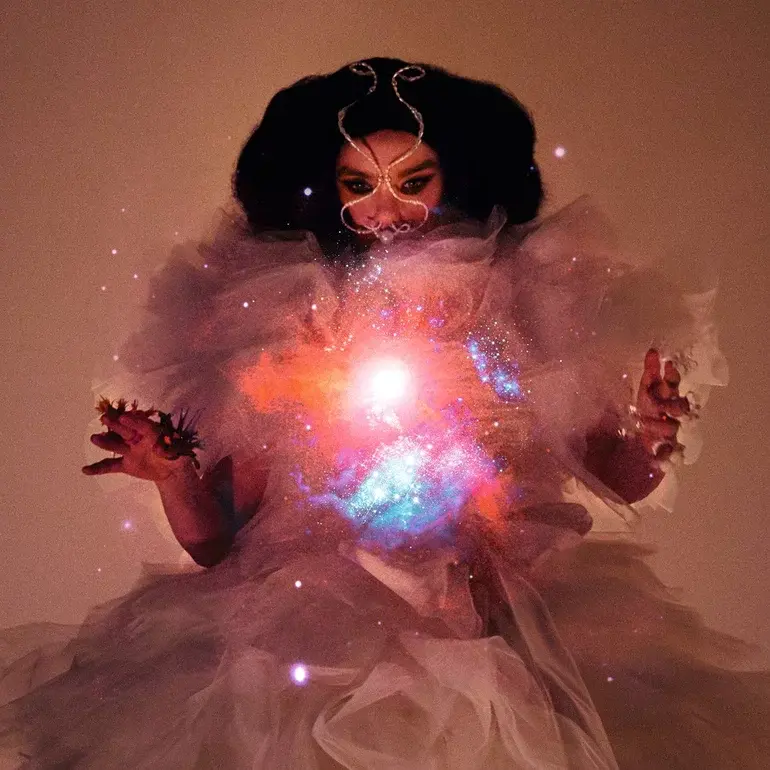That’s not “liberal economics”, that’s just “Capitalism in practice”.
Have you noticed how liberalism is always pro-capitalism?
Uh, liberals tend to want to shift capitalism towards something more equitable - you know, something that doesn’t leave so many people jobless or homeless.
liberals tend to want to shift capitalism towards something more equitable
No, they don’t - they try to reform capitalism to head off revolt against the capitalist status quo. That is why liberal reforms to capitalism (at best) only makes life better for a certain part of the working class - see how Roosevelt’s GI Bill left black vets and their communities out in the cold for an example. When this fails to protect the capitalist order, liberal-types will happily co-operate with fascists to violently repress the working class - see Weimar Germany for an example of that.
If you are the reading type, I’d suggest Clara Mattei’s The Capital Order: How Economists Invented Austerity and Paved the Way to Fascism - I haven’t encountered anyone who explains the history as well as she does.
Liberals are not your friends - Malcolm X was perfectly accurate when he described them as “smiling foxes.”
You just said the same thing twice
Welcome to Lemmy
Liberals tend to be against handing large amounts of money over to big corporations, though.
Where is the difference?
So if your question is in good faith let’s break it down a little.
Capitalism is a economic system. It may have some liberal or conservative slant inherently, but in theory there isn’t anything implicit.
A liberal or conservative economic policy would be how you manage that economic system. Liberal economic policy should tend to favor rules and regulations to account for the flaws of unchecked capitalism. Conservative policy tends towards less regulation, relying on the market system to set prices for goods and services.
Personally, I’m liberal because the ultimate goal for any capitalist is a monopoly. Often in that situation, you get an unequal power dynamic that allows a company to stay ahead of competition or bully them out of the market, preventing the market from setting prices. Additionally liberal policy tries to regulate negative externalities, such as companies dumping chemicals in a river (such as when the Ohio river caught on fire leading to the creation of the EPA). Frankly, these are real problems inherent in capitalism that conservative policy doesn’t address because it makes the rich richer. It’s pretty disingenuous to argue that liberal policy is there to benefit the rich.
Anyway, that’s a super basic breakdown. None of that is say there isn’t corruption from the rich and greedy in politics. Frankly, money equating to political influence is crazy and has allowed the weathly to completely shape world policy. If you want change, look to rank choice voting systems or other ways to move more choice and power back to voters.
I appreciate you trying to answer a question in good faith, but you’re conflating ‘liberal’ with ‘vaguely left-leaning’, and none of what you’ve said makes any sense outside of current US political ‘discourse’ where ‘Liberal’ means ‘slightly left-wing’.
What you describe as liberal economics is closer to Keynsianism or Social Democracy.
In economics, the ‘Liberal’ school of thought is generally against regulation and interference in the market, seeing it as being ‘self-regulating’. In economic terms, Reagan and Thatcher were Liberals - hence them being associated with ‘Neoliberalism’.
The whole thing you said about Capitalism tending towards monopoly is actually a very Marxist/Socialist idea - Liberal economic theory tends to argue that monopolies form because of government and that they wouldn’t occur in a truly free market (although its more nuanced than that, there’s major disagreements over ‘Natural Monopolies’ etc. within the Liberal school). Source: look up any Liberal economist/thinker and their view on monopolies. E.g Friedman, J.S Mill.
Capitalism being an economic system doesn’t make it apolitical. ‘In theory’ Liberalism and Capitalism are very very closely intertwined, it’s not implicit, it’s absolutely explicit if you read any Liberal political or economic theory.
Economics is inherently political.
https://plato.stanford.edu/entries/neoliberalism/#Libe Sections 3 and 4 of this are a decent starting point.
Also the idea of slightly changing our voting systems as the way to drive change is quite hilarious. Sure, moving away from FPTP would probably help a bit, but it’s not like countries with other systems are doing fine. These issues are more fundamental. And historically, fundamental change has never occured through small technical adjustments to political systems.
Good response! Thanks for the further reading! I was never an economics student, this post just felt like disingenuous US political arguments so I appreciate someone with a real background chiming in!
You’re welcome!
I’m not an expert by any means, but did Politics and Economics as my undergrad and did decently well in it; am happy to share my knoweldge. Also wanted to apologise if parts of my previous post seemed a bit condescending, wasn’t my intention.
Would be happy to debate/discuss more at any point if you’re interested.
Figure I might as well drop some more reading recommendations:
Specific to the topics of the discussion:
Chapter 14, from 23 Things They Don’t Tell You About Capitalism by Ha-Joon Chang This basically expands on the meme, and explains the connection between liberal economics and ‘pro-rich’ economics, in only 9 pages. Not very in-depth, but quite good and readable - although note that this book is very much a pop-economics polemic, and Chang is an Institutionalist economist and very skeptical of ‘free market’ economics. He’s fairly controversial among economists, but not super radical or anything. Link to pdf of this chapter only. The whole book is free to borrow on Archive.org.
Chapter VIII ‘Monopoly and the Social Responsibility of Business and Labor’, from Capitalism and Freedom by Milton Friedman. For a free-market take on monopolies, although a bit of an outdated take (the data has changed a lot, but the general arguments are still relevant). Free on Archive.org
Are markets efficient or do they tend towards monopoly? The verdict is in, by Joseph Stiglitz Pretty short article that expands on our discussion about monopolies in the modern world. Link to article
Chapter 2, Section 3 of ‘The Poverty of Philosophy’ by Karl Marx This is basically Marx arguing against Proudhon, so a lot of it is weird out of context, but does sum up Marx’s views on monopolies. As with most Marx, not super easy to read, but very interesting. Link to text from Marxists.org
Chapter 2, ‘Liberalism and Liberal Thinkers’, from 101 Great Liberal Thinkers by Eamonn Butler A summary of liberal ideas, written by a self-described (neo)Liberal and founder of the Adam Smith Institute. Freely available from the American Economic Association
More Generally Relevant / In-Depth Stuff:
The Wordly Philosophers by Robert Heilbroner Is a nice and readable intro to the history of economic thought, would recommend for an enjoyable read and broad overview. Available to borrow on Archive.org
Economics: The Users Guide by Ha-Joon Chang This is somewhat of a ‘pop-economics’ text so is quite readable, but also has solid knowlege. Chapter 4 has a nice summary of some of the major schools of thought, and there’s a lot of interesting economic history in here as well. Available to borrow on Archive.org
Market Reasoning as Moral Reasoning: Why Economists Should Re-engage with Political Philosophy by Michael Sandel Short article with interesting arguments about the limits of economics as a field, especially in considering the moral implications of allocating resources using markets. Freely available from the American Economic Association
Chapter 3, ‘The Nature of Heterodox Economics’ from ‘Essays on the Nature and State of Modern Economics’ by Tony Lawson Although this one is very academic, chapter 3 is only about 20 pages long and has a fairly good summary of some of the assumptions and criticisms of ‘modern mainstream economics’ vs ‘heterodox economics’. The rest of the book is excellent as well, it’s focused on a critique of modern economics and its attempts to be a ‘hard science’ by using lots of maths and models, with questionable results. Link to a pdf here.
Chapter ‘The Place of Liberty’ from An Introduction to Political Philosophy by Jonathan Wolff Especially recommend the section on problems with liberalism Available to borrow on Archive.org
The Economy by Core Economics This is just a textbook, not exactly light reading but it’s free and written by some pretty high-profile (mainstream) economists. It’s what I was mainly taught from so if you’re interested in what they teach at mainstream econ courses but want to skip the whole ‘paying massive tuition fees’ part, here it is. Link to the textbook on their website.
Also, Marginal Revolution has good stuff on econ on their YT channel and website; they are very pro-free market.
Hope this is interesting and/or useful, have a nice day!
I appreciate your effort, but my comment probably wasn’t what you would call “good faith”.
Even leaving aside the rather odd US scale, a liberal economic system is inherently capitalist, since capitalism is defined by private ownership of the means of production, wage labour, exploitation of workers and pricing in a market. All this is still present in what you call a liberal economic system (even if some of these effects are dampened) without touching the root of the problem, so it is indistinguishable from, or even equal to, capitalism, whether in an unregulated or regulated flavour.
USian detected.
“liberal economics” ? Seriously? This flowchart describes every POS robber baron capitalist for the last several centuries.
Economic liberalism is the economic theory of both American parties. Idk how it came to be applied to only the democratic party but that’s incorrect. OP is presumably critiquing economic liberalism from a leftist perspective, of which the Democrats are not
those are the effects of liberal capitalism
Right?! This is gaslighting pure and simple. Trump gave tax breaks to his corporate cronies on the backs of the poor and middle class. Was Trump a liberal? How about Bush? Clinton (who was a Democrat) made substantial strides toward fixing the economy. But I guess he was a conservative? Idiots don’t know the meanings of words. Next you’ll tell us that socialism and communism are both the same thing and what liberals want for the country.
What definition of liberal are you using here?
the one of (neo)liberalism. An economic state which is accepted and perpetuated by virtually all sides of the culture war
Historically by the right wing then.
Historically by both, the democrats just give out a couple treats now and then to make themselves look progressive
Edit: unless of course you’re using the actual definitions of left and right wing, but most people in this thread aren’t so forgive me if I’m mistaken
Tankies use neoliberal liberally
There’s 0 real economists who hold anything close to these views. What a stupid take. Before you downvote, I ask that you find a single source that contradicts my claim. Since all liberal economics is like that, it should be easy, right?
Doesn’t matter what academics think or teach when this is what happens in the real world
Examples? I would love some free billions!
Well you need to start with a bunch of billions and some billionaire friends.
deleted by creator
Sure, but that’s not what the post is about.
deleted by creator
you are correct and that is what all those economic theories boil down to tbh
Were you not alive during the 2008 global financial meltdown? Where the entire world had to subsidize the 1% because the banks they own sold garbage mortgages?
What about more recently with the bank runs that we had a month or so ago? The fed implented a new “insurance warranty” to make banks whole again “without using tax payer funds” but we both know that’s a load of bullshit…
Now we have this never ending inflation, interest rates only going up for who knows how long… Literally siphoning your money from whatever savings you have left and if you’re already broke, they are taking away any buying power you had and taking it down to nothing…
So yea, fuck whatever bullshit economic theory or whatever academic bullshit you are talking about, regardless of whatever “politics” it’s tagged under… Its the 1% snatching away any and all power that the people accumulated over this covid recovery (strong labour market, practically 0 interest during peak covid, work from home, etc)
Thanks for listening to my Ted talk…
*a word
Sure, real economists don’t explicitly hold those views. But the kinds of metrics and models liberal economists are fond of using basically lead to that flowchart.
aka “Reaganomics”
FTFY:

good one

This is definitely not “Liberal Economics”.
Neoliberal economics
“Further right than leftists” economics
I don’t get it. Billionaires do billionaires things, but this meme being made the same week as a liberal policy requiring fair taxes for the rich to cover social security for the next 75 years makes this poster 100% out of touch.
The use of the word liberal here is not the same as the one used by the one commonly used in conversation. This meme is talking about neoliberalism which is the dominant economic idea in the US and UK right now.
It’s the dominant economic idea in the entire western world.
Even the Social democracies like Sweden are just a degree of neo liberalism. You won’t find most people saying they want communism.
If anything hardcore leftists are out of touch, including the OP.
You can downvote me all you want, but it’s no secret that this instance was essentially a communist refuge lol.
I think you’re equating “is dominant” to “is good”. These are very very much not the same thing.
First of all, I don’t know which country you are talking about which put these policies in place. And it does not matter as it does not alleviate the exploitation inherent in capitalism, it only puts a nice coat of paint over it…
They’re probably US-American, who thinks liberalism is the farthest you can get as a “leftist” and that liberalism is not just spiced up centre(-left).
could be the case, ppl from the USA often assume they are the center of the universe for whatever reason
Well, have you ever looked at a map? We are always right in the center of it!
good one. Smth else that I find quite funny as well: ppl from the US equating “America” with “USA” as if they are somehow more important than two literal continents
Has this liberal policy you talk about actually done anything to threaten capitalism in any way?
It’s the kind of meaningless vague posting that rightoids are rightly criticised for when they post shit about the people they consider to be the ‘problem’. It’s vaguely shaped like the way they see the world, but really this is about as substantial as the ‘immigrant benefit fraud’ posts your shitty uncle posts.
I don’t even know what this is referencing, or how this would work, but everyone is in here saying ‘Omg so true’ and believing that this is the reason that things are shitty.
Like, everyone’s quick to jump on bollocks conspiracy theories, and consider such things as flat-earthers to be significant in any way, but you’ll constantly see vague shit implying these enormous, unlikely conspiracies between multiple competing companies, the government, involving the collusion and silence of thousands of people, and they get up voted because people believe it’s the sort of thing that could happen.
What bothers me is that it ends up coming to ‘someone should do something about this!’, but exaggerating constantly makes extreme options look reasonable or even necessary.
Very few people can actually say what they’d want the new status-quo to look like though, outside of vague slogans or utopian ideas that those in power will somehow do things wisely, justly and selflessly, like they never have before. We can’t compare to any other attempt at communism, and even the most prosperous socialist state would be considered ‘neolib’. Because the thing is, it’s really not clear how communism is the silver bullet many think it is, but also, the vagueness and disparity about the end goal means that we can’t really look at our current situation, look at the proposed one, look at what it will take to get there, and make an informed decision on which is likely to actually make things better.
Liberal in economics and Liberal in US politics mean two very distinct and different things. It’s like the way a ‘runner’ in a race is different to a ‘runner’ in a restaurant. They’re not the same things at all.
Economic liberalism means free trade and deregulation. If it makes money, it’s good. Neoliberalism is also referred to as ‘hypercapitalism’.
‘Liberal’ in US politics means ‘left of the GOP’ and is its own unique thing. It bears no relation to economic liberalism at all. The two may coincide but they’re independent of one another.
Did that policy become law?
OP’s account is full of this type of half thought out, zero context, communist propaganda memes. I don’t even disagree with the premise of most of them in general, but it’s just turning this place into an auth-left Facebook.
Oh no! Not the “auth-left.” They may make corporations exist for the good of the people instead of profit.
*exist for the good of those in power. I really don’t see the value of concentrating power into a single point of failure.
Neither do most Communists, to be fair.
Yeah see, these are the lazy non evidence driven meme statements I’m talking about which Facebook is commonly criticized for
You’re so right lol. Most of these memes are completely brain dead.
Which policy is that? Does it have a built in way to prevent accumlation of wealth? Maybe a death tax? Maybe some nationalizing of industry’s? No? Then it sounds like you are the one out of touch.
Neo liberal, but yes.
How is a liberal not a capitalist supporter?
There’s a drastic difference between a neoliberal and a liberal. They’re very different terms.
that’s billions of tax payers money with the tax burden being disproportionately heavy for the 90% while the 10% pay less and less taxes the richer they are
I like how on lemmy you see both how much upvotes and downvotes you have, on reddit you could have a score of 1 and don’t know much has happened, but with lemmy you could have 50 upvotes and 49 downvotes, making you really think about it…
Not only that, but admins and kbinners can actually view which accounts upvoted and which downvoted each comment.
I thought everyone can see it? Not just admin
Everybody can see the number of upvotes and downvotes. But on kbin you can literally see which accounts upvoted and which accounts downvoted.
All interesting things, I’m gonna learn more about these things.
What’s a kbinner?
A user on kbin
False, the bottom 90% paid about 25% of income taxes (in the US at least). https://taxfoundation.org/publications/latest-federal-income-tax-data/
it’s about the percentage of income paid, not the net sum
Ok, so what percentage of income do the various income brackets pay?
Why don’t you look it up?
But I think what they mean is that the 90% are more affected by it, because proportional it’s a bigger chunk of their income missing.
But I could be wrong
Once again, I blame the Chicago school of economics. Fuck that economic theory. It’s exactly why we have the mega corporations of today, it’s entire purpose was to neuter the Sherman antitrust act after Roosevelt’s crusade against the trusts.
the chicago school is just a natural development of capitalism. In competition instead of cooperation, the winner absorbs the looser and cetralizes production more and more into oligopolies. Even if you turned back the time before the era of “crony/coorperate capitalism” it would take but a bit of time to get back to the state we are in right now…
It’s just socialism for companies
not rly, it’s capitalism working as intended
I guess I forgot the /s What I meant was capitalist socialism
It’s imperialism to be precise, the highest stage of capitalism which see the merging of monopolies and state power, resulting in things like widespread corruption (lobbying), state waging wars in the interest of big capital, policies being subordinate to the stonks line and of course bailing out corpos which are “too big to fail”.
In a nutshell, it’s just natural development of capitalism.
I guess you could say it’s “corporate welfare” but the word “socialism” is not correct and shouldn’t be used here.
You can kind of see it that way… the rich get corporate, state-engineered socialism while the non-rich gets brutal “free market” capitalism.
reagan’s a liberal?
He’s a neoliberal which is an economic stance that promotes deregulation of the markets and support of free trade along with government austerity.
always has been (in terms of economics)
HAHaHAHAHAHAHA
I think OP meant NeoLiberal.
People upvoting this do not understand geopolitics.
People who think this is geopolitical don’t know what “geo” means
Sir, This is America
I’m a firm believer that all sides rob cheat and steal. Some more than others though…















